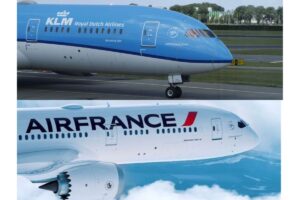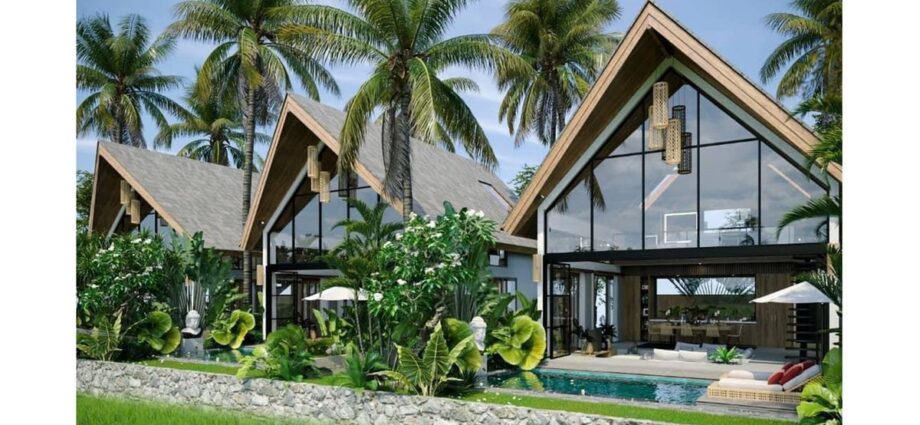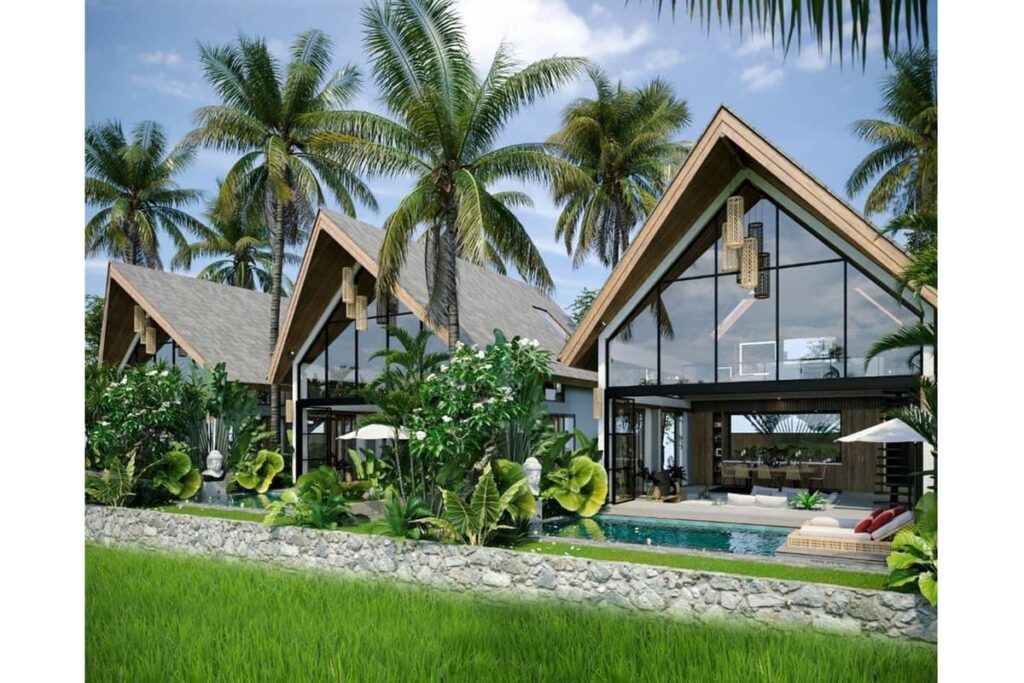With construction set to begin in December 2022, the Emerald is set to have some 20 villas with their delivery in just 8 months from the date of commencement.
In a statement, the developers Floton Africa Company Ltd say they are offering title deeds and many other incentives because the project has been registered and approved by the Zanzibar Investment Promotions Authority (ZIPA).
According to the developers, unlike the characteristic real estate projects that take up vast amounts of land often in places that have no previous development, the Emerald Villas is set to have a different approach.
“We are coming up with a new model that is set right within the existing village community and is easily accessible, as opposed to what we have seen in the past where a project starts off in the middle of nowhere and then attempts to develop and attract a community thereafter,” says Richard Ashby of Shivo Limited, the exclusive marketing partner for Floton Africa projects.
He believes that one of the reasons why many huge real estate projects have struggled in the past both on Tanzania mainland and Zanzibar is because the developer has to spend almost 40 percent of the capital on provision of basic access and other infrastructure.
“But when you look at the set up that we have, we are developing the Emerald Villas in a neighbourhood that is already operational, this cuts the work by almost by half because the infrastructure already exists and Paje village is already one of the coolest places to live on the island,” says Ravi of Floton Africa Company Limited.
The lack of infrastructure is otherwise the reason why other projects take a long time to kick off given the amount of time taken to build things like roads and water systems.
“When we start construction in December, we will build out all of the villas at once, and with 70 percent of those villas already reserved, the whole project will roll out immediately, we do not have to build any social amenities, and we don’t have to drag people off to neighbourhoods that they are complete strangers to and where they cannot even find a basic supermarket within a 15 minute drive, so the overall offering is just unrivaled on Zanzibar.“
According to Richard, Emerald villas is positioned so that Paje beach is still barely a six minute walk away, while remaining in a peaceful location set away from the busy late night party scene.
The project has attracted positive reviews from the community with many saying it is what an area like Paje has been waiting for.
“I realised after 5 minutes of living in Paje that nobody wants a luxury pool villa on the south east coast if you have to drive 20 -25 minutes to get home from a club or restaurant after a night out, or to get changed before dinner after an afternoon at the beach. It needs to be 5-10 minutes max, that’s the lifestyle buyer, “said Richard.
He added: “An area like Paje is full of kite surfers, digital nomads, business people, hoteliers, and other professionals, they want convenience and they want to live within the community that they work in and enjoy. If you can’t understand that as a developer, you’re dead in the water.
In his opinion buyers who are ready to pay between $150,000 and $250,000 are usually educated buyers who will not settle for less than a top spec finish, and this combined team of Floton Africa Company Ltd and Shivo Ltd are apparently here to stay, bringing forth a number of other groundbreaking residential projects to follow across the island for 2023’.
See https://www.instagram.com/shivo_tanzania/?hl=en for all the latest project updates or call +255742100050
Share this news
This Year’s Most Read News Stories

Tanzania Confirms Second Marburg Outbreak After WHO Chief Visit
Dar es Salaam — Tanzania’s President Samia Suluhu Hassan has declared an outbreak of Marburg virus, confirming a single case in the northwestern region of Kagera after a meeting with WHO director-general Tedros Adhanom Ghebreyesus.
The confirmation follows days of speculation about a possible outbreak in the region, after the WHO reported a number of deaths suspected to be linked to the highly infectious disease.
While Tanzania’s Ministry of Health declared last week that all suspected cases had tested negative for Marburg, the WHO called for additional testing at international reference laboratories.
“We never know when an outbreak might occur in a neighbouring nation. So we ensure infection prevention control assessments at every point of care as routine as a morning greeting at our workplaces.”Amelia Clemence, public health researcher
Subsequent laboratory tests conducted at Kagera’s Kabaile Mobile Laboratory and confirmed in Dar es Salaam identified one positive case, while 25 other suspected cases tested negative, the president told a press conference in Dodoma, in the east of the country today (Monday).
“The epicentre has now shifted to Biharamulo district of Kagera,” she told the press conference, distinguishing this outbreak from the previous one centred in Bukoba district.
Tedros said the WHO would release US$3 million from its emergencies contingency fund to support efforts to contain the outbreak.
Health authorities stepped up surveillance and deployed emergency response teams after the WHO raised the alarm about nine suspected cases in the region, including eight deaths.
The suspected cases displayed symptoms consistent with Marburg infection, including headache, high fever, diarrhoea, and haemorrhagic complications, according to the WHO’s alert to member countries on 14 January. The organisation noted a case fatality rate of 89 per cent among the suspected cases.
“We appreciate the swift attention accorded by the WHO,” Hassan said.
She said her administration immediately investigated the WHO’s alert.
“The government took several measures, including the investigation of suspected individuals and the deployment of emergency response teams,” she added.
Cross-border transmission
The emergence of this case in a region that experienced Tanzania’s first-ever Marburg outbreak in March 2023 has raised concerns about cross-border transmission, particularly following Rwanda’s recent outbreak that infected 66 people and killed 15 before being declared over in December 2024.
The situation is particularly critical given Kagera’s position as a transport hub connecting four East African nations.
Amelia Clemence, a public health researcher working in the region, says constant vigilance is required.
“We never know when an outbreak might occur in a neighbouring nation. So we ensure infection prevention control assessments at every point of care as routine as a morning greeting at our workplaces.”
The Kagera region’s ecosystem, home to fruit bats that serve as natural reservoirs for the Marburg virus, adds another layer of complexity to disease surveillance efforts.
The virus, closely related to Ebola, spreads through contact with bodily fluids and can cause severe haemorrhagic fever.
Transparency urged
Elizabeth Sanga, shadow minister of health for Tanzania’s ACT Wazalendo opposition party, says greater transparency would help guide public health measures.

Sign up for free AllAfrica Newsletters
Get the latest in African news delivered straight to your inbox
“This could have helped to guide those who are traveling to the affected region to be more vigilant and prevent the risk of further spread,” she said.
WHO regional director for Africa Matshidiso Moeti says early notification of investigation outcomes is important.
“We stand ready to support the government in its efforts to investigate and ensure that measures are in place for an effective and rapid response,” she said, noting that existing national capacities built from previous health emergencies could be quickly mobilised.
The situation coincides with leadership changes in Tanzania’s Ministry of Health, with both the chief medical officer and permanent secretary being replaced.
This piece was produced by SciDev.Net’s Sub-Saharan Africa English desk.
Source: allafrica.com

How diplomatic intervention kept Air France, KLM in Zanzibar
It has, however, emerged, that the Netherland and France sought a diplomatic solution to a standoff at the Abeid Aman Karume International Airport, warning that it could disrupt Air France and KLM flights into Zanzibar, and later Dar es Salaam.Continue Reading

Elon Musk’s company to launch internet in Tanzania
Elon Musk’s Starlink internet service is expected to be available in Tanzania in the first quarter of 2023, with analysts saying the new development will boost the digital economy.Continue Reading












